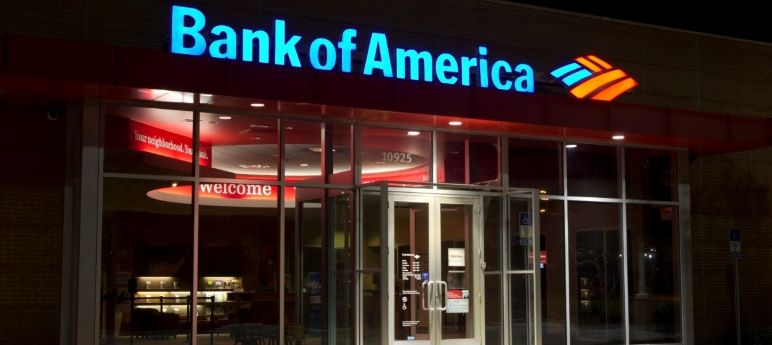Just how dysfunctional is California’s unemployment department?
Apparently so dysfunctional that Bank of America, which since 2010 has had an exclusive contract with the state to deliver unemployment benefits through prepaid debit cards, wants to end the contract — even though the Employment Development Department just renewed it for another two years.
Bank of America has been sued for failing to provide sufficient protections for unemployment payment debit cards after thousands across California have fallen victim to fraud. Image via iStock
The news that Bank of America wants to get out of the EDD contract, first reported by ABC 7 in San Francisco, comes about a month after a federal judge — as part of a class-action lawsuit first reported by CalMatters — ordered Bank of America to stop using an automated fraud filter that blocked tens of thousands of legitimate claimants from accessing their benefits after they reported suspicious account activity. The bank said it received 230,000 claims of debit card fraud from October 2020 through March 2021.
Bank of America’s desire to end the contract is striking, given that both the bank and the state rake in merchant fees whenever an unemployment debit card is swiped.
EDD has pocketed millions in fees amid the pandemic: It earned more than $47 million from March 2020 through April 2021, even though the claims of more than 1.1 million jobless Californians remain in limbo.
However, Bank of America told state lawmakers it lost “hundreds of millions” of dollars on the contract last year as it scrambled to respond to California’s rampant unemployment fraud, which experts say could total upward of $31 billion.
Bank of America said in a statement: “We have advised the state that we would like to exit this business as soon as possible.”
Ultimately, the cost of California’s unemployment fraud will likely fall on taxpayers. And businesses will likely shoulder the staggering weight of California’s unemployment insurance debt, which experts estimate could reach $26.7 billion by the end of the year.
Meanwhile, EDD is still struggling to answer the millions of calls it receives each week — so much so that California’s 80 state assembly members were just given the green light to hire two staffers each to handle EDD problems.
Emily Hoeven is a writer with CalMatters.


The real failure in this story is decades of neoliberal defunding and stripping of state operations, institutions and programs, combined with private sector “partnerships” that amount to different ways for private actors to leach public funds. The corporate Democratic super-majority trifecta are directly responsible for the dilapidated state and weak capacity of the Employment Development Department (EDD). As some lawmakers have noted throughout this debacle, state agencies were and are quite capable of transferring funds destined to beneficiaries by simply transferring those funds from state bank accounts (presently held at private banks) to recipient bank accounts or via checks mailed directly to beneficiaries homes’ without the intermediation of bank debit cards.
The real solution here is the establishment of a public bank that fulfills all the state’s banking needs for a fraction of what the Bank of America or Wells Fargo or others presently charge the state, like the 101-year-old Bank of North Dakota (https://bnd.nd.gov/history-of-bnd/). If we had a public bank at the state level, the hundreds of billions that pass through Sacramento could be managed and mediated without paying tens of millions in fees and commissions to private bank fraudsters (https://lao.ca.gov/Publications/Report/4263; https://www.justice.gov/opa/pr/bank-america-pay-1665-billion-historic-justice-department-settlement-financial-fraud-leading; https://www.justice.gov/usao-cdca/pr/wells-fargo-agrees-pay-3-billion-resolve-criminal-and-civil-investigations-sales; https://www.latimes.com/business/story/2020-01-27/wells-fargo-scandal; https://www.lexisnexis.com/LegalNewsRoom/financial-fraud-law/b/blog/posts/jpmorgan-chase-defrauded-100-000-people-california-alleges).
In October 2019, the state of California formally and legally enabled the establishment of public banks (https://www.latimes.com/ business/story/2019-10-02/public-banks-can-be-formed-under-bill-signed-by-newsom). A state bank could provide wider fiscal space to embark on healthier and heftier levels of public investment and, like the Bank of North Dakota, afford greater revenue stability and fiscal maneuverability allowing the state to finance its debt (https://www.sanjoseinside.com/news/as-community-lenders-sell-out-or-go-under-can-publicly-owned-banks-restore-local-control/; https://www.sanjoseinside.com/opinion/op-ed-public-banking-can-recharge-south-bays-economy/). A state public bank could also serve a development function by funding infrastructure projects.
We need more affordable housing or more and better public infrastructure: the public bank will fund this. We need better school facilities and more public hospitals and clinics: a public bank can and will fund these too. We desperately need environmental protection, restitution and reparation; the public bank can lead the way. The state bank can directly finance what we need, when we need it and can do so without private bankers and the wealthy weighing in and taking a cut.
Yes, a state bank (or even county or city bank) is possible, and it has been done in North Dakota, well-known for ages. Given the lunacy of liberalism now in the state that infects many a government, there’s a huge concern that the state would blunder with a bank, too, as well as subject it to sick politics and related misuse, at taxpayer expense, which is exemplified at the starting stage already in the earlier comment. (A much bigger, “progressive” West Coast-style Bank of Detroit)
We are EXTREMELY LUCKY states governed like California can’t issue their own currency! If you thought the recurrence of inflation begun after 2008 with more open advocacy of inflation now is bad enough …